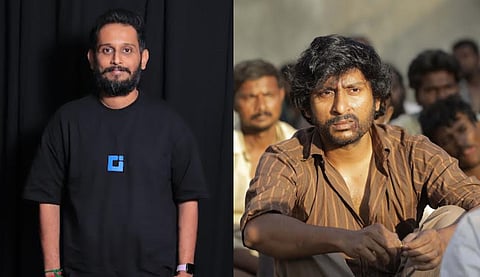

Liberation. This is the one word that is on the minds of people for the entire time they are inside the prison. Director Sidharth Vishwanath began drafting his debut film Sorgavaasal based on this concept and the lives of the people inside it. “There is a completely different life inside that we haven’t seen in movies. We cannot defend any crime. But, there is a thin line between glorifying prison life and sensitively showing how convicts are mentally and psychologically affected inside prison,” he says. On the extensive research he did for the film, Sidharth says, “One of the most shocking facts that I discovered was that 70 per cent of them are undertrial prisoners. But the judicial process has forced them to stay inside without the tag of a convict. They say someone is ‘innocent until proven guilty, but these people are guilty at first and must prove their innocence. AG Perarivalan’s book has been a real eye-opener in this regard,” he says, stating that everyone lives with the hope that the ‘sorgavaasal’ will open for them one day.
However, the spark that led Sidharth to pursue the story was the question of whether this institution helps people reform. The film takes a page from the 1999 riots in Madras Central Prison and presents a fictionalised version of it. “Along with writers Thamizh Praba and Ashwin Ravichandran, I approached writing for the film in a sensitive manner. We wanted to humanise the prisoners, and at the same time, we were careful not to step into glorification anywhere. Our aim was to show how the system transforms them completely,” he shares. And RJ Balaji, Sidharth felt, was the right lead to reflect the script’s darkness and its light. “Every prisoner believes that there is a light at the end of the tunnel. This is what I feel attracted him to the script as well. RJ Balaji, who has mostly been working on comedy entertainers and family-based films till now, was ready to break the mould and experiment. When he held that trust, it only gave me a boost to my confidence. He told me that he was able to connect with his character Parthiban and his struggles,” he says, noting, “In fact, he already has an intensity within himself. But expresses it through comedy or light-hearted banter.”
Throughout its runtime, Sorgavaasal is painted with hues of red, black and grey and Sidharth is aware that the violence in the film is at a higher-than-normal range. “We can never show a gritty place like a prison as a heaven. But it depends on how we restrict ourselves from thrusting the violence onto the viewers. We have seen many scenes in Tamil cinema that are gruesome. I didn’t want it to step in there,” he reveals. The director feels honoured and humbled to have worked with an ensemble cast consisting of Selvaraghavan, Natty, Karunaas, Ravi Raghavendra, Samuel Robinson, Sharaf U Dheen, and Balaji Sakthivel. The film also has an endearing romance between Parthi and Revathy (Saniya Iyappan). Although her role is limited, the director mentions that he did not want to reduce her to a cameo. “The politics that I believe in and grew up with stopped me from writing her as a one-dimensional character. Even if it is one well-written scene with a good performance that moves the story, the audience recognises that. To reflect an emotional depth, you don’t need ten scenes or more. Take characters like ‘Dancing’ Rose (Sarpatta Parambarai) or Rolex (Vikram), for example, their roles were widely appreciated. That is what I tried with her role,” he shares.
Having worked as Pa Ranjith's assistant for six years, Sidharth points out that it gave him an experience akin to studying at The LA Film School. “We did not just stick to filmmaking, we also had regular discourses on movies and their politics and craft. I feel that he is a very tasteful filmmaker whose craft never diminishes even when political ideology is prominent in the film. I don’t know why he is a misunderstood filmmaker,” he says. Every character in Sorgavaasal has a hue of love present deeply inside them. Sidharth believes in this love strongly. “All of our paths may be different, but we are all aiming for equality in society and how it can be achieved through love. That is what captivated me as well,” he says, signing off.